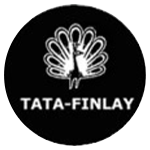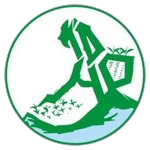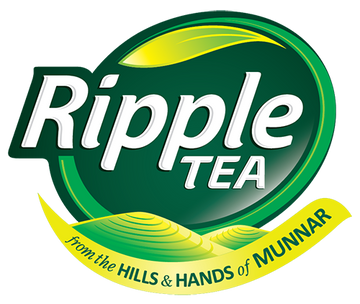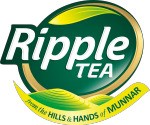THROUGH 140 YEARS OF TEA LEGACY

1880
TEA FIRST PLANTED IN MUNNAR

1886
KANAN DEVAN HILLS PRODUCE COMPANY IS FORMED

1915
16 FULLY FUNCTIONAL FACTORIES

1976
TATA-FIN LAY LIMITED IS BORN

1983
TATA TEA LTD. BORN

2005
KDHP, WORLD'S LARGEST EMPLOYEE-OWNED TEA COMPANY IS FORMED

2010
RIPPLE TEA BRAND LAUNCHED

1877
John Daniel Munro, an officer of the Independent Kingdom of Travancore and designated Superintendent of the Cardamom Hills, makes an application to the Poonjar Chief for the grant of the property called Kanan Thevan Anchanatu Mala on payment and obtains from the Raja the first Pooniat Concession Deed.

1886
The first tea is planted in Parvathi Estate (a part of today’s Sevenmallay Estate) by A. H. Sharp.

1896
The Kanan Devan Hills Produce Company is formed in the Kanan Devan Concession territory. Estates outside the Concession territory but within the High Range are owned by the Anglo-American Direct Tea Trading Company, also a subsidiary company of Finlay Muir & Co. Ltd.

1900
The Kanan Devan Hills Produce Company constructs the first Hydro-electric Power House at Pullivasal – one of the first in India. In the same year the Korangani – Top Station ropeway was also established to transport goods from the plains to the Hills and tea to the plains in turn.

1915
About 16 fully equipped factories function on the estates. Transport of leaf from the field to the factory is by bullock-cart, which is to be replaced by tractors in the years to come.

1926
The Kundaly Valley Ropeway for transportation of tea and goods was completed at a cost of Rs 7.61 lakhs! The company started a Veterinary Department in the same year to improve the condition of the cattle in the High Range.

1964
: James Finlay & Co. enter a collaboration with the Tatas for establishing an Instant Tea Factory in Nullatani Estate. It is the world’s largest Instant Tea Factory outside USA.

1976
Tata’s purchase the complete business interests in India of the Finlay Group and Tata-Finlay Limited is born.

1978
The High Range Game Preservation Association, the predecessor of the present day High Range Wildlife and Environmental Preservation Association, persuaded the Central Government to declare the Eravikulam area as a National Park – the only National Park of its kind in India, perhaps in the world, where an NGO actively and effectively collaborates with the Government in the joint management of the National Park.

1983
Tata Tea comes into being and sets up Asia’s largest Super Tea Factory in the mid-eighties at Chunduvurrai Estate.

1990s
Tata Tea sets up a fully automated tea factory at Madupatty. The company also starts organic tea cultivation in Chunduvurrai Estate, with organic tea manufacture facility at Yellapatty Factory.

2005
Inauguration of India’s first ever Tea Museum was done along with the formation of KDHP. Officially known as the Tata Tea Museum, it is also popularly known as KDHP Tea Museum.

2005
Kanan Devan Hills Plantations Company Private Limited (KDHP), the first and the largest participatory management company in India with more than 12500 employees as shareholders took over the majority of tea plantations in Munnar from Tata Tea Limited, w.e.f. April 1st, 2005.

2006
KDHP ventures into a diversification project under Kundaly Nature Extracts, with the aim of becoming an agri-corporate. KNE was started with the intention of cultivating medicinal and aromatic plants and extraction of oils, and subsequently the scope of operations included production of concretes and absolutes of floral crops such as Rose Damascena, Acacia Decurrens, Tube Rose, Jasmine Sambac, etc.

2010
While primarily being a B2B player, KDHP launches its consumer brand Ripple Tea for distribution in retail outlets across Munnar.

2010
Supported by high offtake and local popularity owing to quality and tourism, Ripple Tea simultaneously expands to retail distribution across Kerala.

2012
KDHP takes a big step forward towards sustainably grown teas by getting certified by Rainforest Alliance. This is in addition to the USDA Organic certification for 300 acres of its plantations at Top Station and Fairtrade certification (Chundavurrai estate) since 2009. KDHP Teas obtain Trustea cerification in 2014.

2015
With Ripple Tea’s success in Kerala, Ripple Tea goes national with the launch of its e-comm portal www.shop.kdhptea.com for distribution across

2018
Ripple Tea ventures into branded retail outlets with the launch of 3 ChaiBazaar outlets across Munnar. 17 factories and packaging units of KDHP gain FSSC 22000 and/or ISO 22000 certification.

2019
KDHP takes a stride further in its branded retail outlet venture through a franchise model for its ChaiBazaar stores and opens an outlet in Kumily (Kerala, India)

2019
Ripple Tea wins big at the Global Tea Championship 2019 Fall Hot Loose Leaf Tea Competition held at Boulder, Colorado, USA. KDHP’s Ripple White Tea bagged the Silver Medal and was ranked No 1 in the Loose / White tea category.

2020
KDHP re-launches an independent e-comm portal for Ripple Tea under www.rippletea.com

